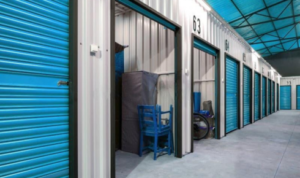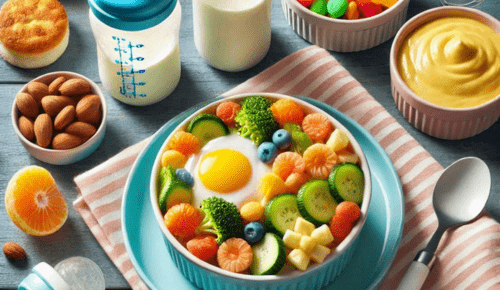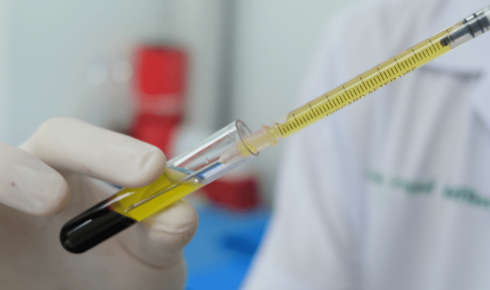HiPP formula is a popular choice for parents who want to provide their babies with high-quality, organic nutrition. However, it’s important to understand the shelf life of HiPP formula to ensure that it remains safe and effective for your baby. The shelf life of HiPP formula can vary depending on the specific product and packaging, but in general, unopened formula can last for up to two years if stored properly. It’s important to check the expiration date on the packaging and to use the formula before this date to ensure its quality and safety. Once opened, powdered HiPP formula should be used within four weeks, while ready-to-feed formula should be used within 48 hours. Understanding the shelf life of HiPP formula is crucial for ensuring that your baby receives the best possible nutrition.
HiPP formula is known for its high-quality ingredients and strict production standards, but it’s important to remember that it is still a perishable product. Proper storage is essential for maintaining the quality and safety of HiPP formula. It should be stored in a cool, dry place away from direct sunlight and extreme temperatures. Once opened, powdered formula should be stored in an airtight container in a cool, dry place, while ready-to-feed formula should be refrigerated. It’s also important to follow the manufacturer’s instructions for storage and preparation to ensure that the formula remains safe and effective for your baby. By understanding the shelf life of HiPP formula and following proper storage guidelines, you can ensure that your baby receives the best possible nutrition.
How to store HiPP formula properly
Proper storage of HiPP formula is essential for maintaining its quality and safety. Whether you’re using powdered or ready-to-feed formula, it’s important to follow the manufacturer’s instructions for storage and preparation. Powdered HiPP formula should be stored in a cool, dry place away from direct sunlight and extreme temperatures. Once opened, it should be transferred to an airtight container to prevent moisture and contamination. Ready-to-feed formula should be refrigerated after opening and used within 48 hours. It’s also important to check the expiration date on the packaging and to use the formula before this date to ensure its quality and safety. By following these storage guidelines, you can ensure that your baby receives the best possible nutrition from HiPP formula.
Proper storage of HiPP formula is crucial for maintaining its quality and safety. It’s important to store powdered formula in a cool, dry place away from direct sunlight and extreme temperatures. Once opened, it should be transferred to an airtight container to prevent moisture and contamination. Ready-to-feed formula should be refrigerated after opening and used within 48 hours. It’s also important to check the expiration date on the packaging and to use the formula before this date to ensure its quality and safety. Following these storage guidelines will help you ensure that your baby receives the best possible nutrition from HiPP formula.
Determining if the HiPP formula is still safe to use
It’s important to regularly check the expiration date on the packaging of HiPP formula to ensure that it is still safe to use. Using expired formula can lead to a loss of nutrients and potential health risks for your baby. If the formula has passed its expiration date, it should be discarded and replaced with a fresh supply. In addition to checking the expiration date, it’s also important to inspect the formula for any signs of spoilage, such as an unusual odor or discoloration. If you have any doubts about the safety of the formula, it’s best to err on the side of caution and discard it. By regularly checking the expiration date and inspecting the formula for signs of spoilage, you can ensure that your baby receives safe and high-quality nutrition from HiPP formula.
Regularly checking the expiration date on the packaging of HiPP formula is essential for ensuring its safety and effectiveness. Using expired formula can lead to a loss of nutrients and potential health risks for your baby. If the formula has passed its expiration date, it should be discarded and replaced with a fresh supply. It’s also important to inspect the formula for any signs of spoilage, such as an unusual odor or discoloration. If you have any doubts about the safety of the formula, it’s best to err on the side of caution and discard it. By regularly checking the expiration date and inspecting the formula for signs of spoilage, you can ensure that your baby receives safe and high-quality nutrition from HiPP formula.
Creative ways to use leftover HiPP formula
If you find yourself with leftover HiPP formula that is nearing its expiration date, there are several creative ways to use it before it goes to waste. One option is to use powdered formula as an ingredient in homemade baby food recipes. You can mix it with fruits or vegetables to create nutritious purees for your baby. Another option is to use powdered or ready-to-feed formula as a milk substitute in recipes such as pancakes, muffins, or smoothies. This can add a boost of nutrition to your family’s meals while using up leftover formula. Additionally, powdered formula can be used as a thickening agent in soups or sauces, adding a creamy texture and extra nutrients. By getting creative with leftover HiPP formula, you can minimize waste while providing nutritious meals for your family.
When you have leftover HiPP formula that is nearing its expiration date, there are several creative ways to use it before it goes to waste. One option is to use powdered formula as an ingredient in homemade baby food recipes. You can mix it with fruits or vegetables to create nutritious purees for your baby. Another option is to use powdered or ready-to-feed formula as a milk substitute in recipes such as pancakes, muffins, or smoothies. This can add a boost of nutrition to your family’s meals while using up leftover formula. Additionally, powdered formula can be used as a thickening agent in soups or sauces, adding a creamy texture and extra nutrients. By getting creative with leftover HiPP formula, you can minimize waste while providing nutritious meals for your family.
Donating leftover HiPP formula to those in need
If you have leftover HiPP formula that you are unable to use before it expires, consider donating it to those in need. There are many organizations and food banks that accept donations of unopened, unexpired baby formula to distribute to families who may not be able to afford it. By donating your leftover HiPP formula, you can help ensure that babies in need have access to nutritious nutrition. It’s important to check with local organizations or food banks to find out their specific donation guidelines and requirements before making a donation. By donating your leftover HiPP formula, you can make a positive impact on the lives of families in need while minimizing waste.
If you have leftover HiPP formula that you are unable to use before it expires, consider donating it to those in need. There are many organizations and food banks that accept donations of unopened, unexpired baby formula to distribute to families who may not be able to afford it. By donating your leftover HiPP formula, you can help ensure that babies in need have access to nutritious nutrition. It’s important to check with local organizations or food banks to find out their specific donation guidelines and requirements before making a donation. By donating your leftover HiPP formula, you can make a positive impact on the lives of families in need while minimizing waste.
Tips for minimizing leftover HiPP formula
To minimize leftover HiPP formula, it’s important to carefully measure and prepare only as much as your baby will consume at each feeding. This can help reduce waste and ensure that the formula remains fresh and safe for your baby. Additionally, if you find that you consistently have leftover powdered or ready-to-feed formula, consider adjusting your feeding schedule or portion sizes to better match your baby’s needs. It’s also helpful to keep track of how much formula your baby consumes each day so that you can prepare just enough for each feeding. By taking these steps, you can minimize leftover HiPP formula while ensuring that your baby receives the nutrition they need.
To minimize leftover HiPP formula, it’s important to carefully measure and prepare only as much as your baby will consume at each feeding. This can help reduce waste and ensure that the formula remains fresh and safe for your baby. Additionally, if you find that you consistently have leftover powdered or ready-to-feed formula, consider adjusting your feeding schedule or portion sizes to better match your baby’s needs. It’s also helpful to keep track of how much formula your baby consumes each day so that you can prepare just enough for each feeding. By taking these steps, you can minimize leftover HiPP formula while ensuring that your baby receives the nutrition they need.
Exploring alternative feeding options for your baby
If you find that you consistently have leftover HiPP formula despite your best efforts to minimize waste, consider exploring alternative feeding options for your baby. Breastfeeding is one option that provides numerous health benefits for both mother and baby while minimizing waste from unused formula. If breastfeeding is not an option, consider discussing with your pediatrician about alternative feeding methods such as combination feeding or introducing solid foods at an appropriate age. These options can help reduce reliance on commercial infant formulas while providing nutritious options for your growing baby.
If you consistently have leftover HiPP formula despite your best efforts to minimize waste, consider exploring alternative feeding options for your baby. Breastfeeding is one option that provides numerous health benefits for both mother and baby while minimizing waste from unused formula. If breastfeeding is not an option, consider discussing with your pediatrician about alternative feeding methods such as combination feeding or introducing solid foods at an appropriate age. These options can help reduce reliance on commercial infant formulas while providing nutritious options for your growing baby.
Understanding the shelf life of HiPP formula is crucial for ensuring its quality and safety for your baby. Proper storage is essential for maintaining the effectiveness of HiPP formula, and regular checks should be made on its expiration date and signs of spoilage. Creative ways exist for using up leftover HiPP formula before it expires, including donating it to those in need if necessary. Minimizing waste can be achieved by carefully measuring portions and exploring alternative feeding options if needed. By following these guidelines, parents can ensure their babies receive high-quality nutrition from HiPP formula while minimizing waste and making a positive impact on their community.
















+ There are no comments
Add yours